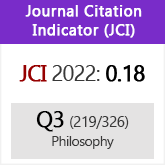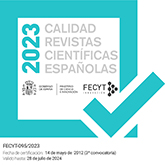POLITICS IN DESCARTES
It is well known that the Cartesian tree of knowledge entrusts to practical philosophy both its tastiest fruits and its most useful advances for humanity. In exploring in detail these practical branches (mechanics, medicine and morals) what becomes clear is, on the one hand, the importance Descartes gives to the passions and, on the other, the relevance of these in the life of the individual and society. However, in contrast to Hobbes or Spinoza, it is not possible to find in this author an explicit political philosophy. Except for brief references in the preface letters to the Principia and the Passions of the Soul, and a few brief sentences in the Discourse and the Meditations, the absence of a political theory seems clear. However, throughout the extensive Cartesian correspondence there is abundant material to investigate the extent of Descartes' interest in politics and whether he considers it a scientific mode of knowledge.
In view of this, those interested in Cartesian studies are invited to delve deeper into these and other derived questions. The aim is to rehearse a renewed and critical reading of the ethical-political passages of this author in order to study how the production of the new subjectivity he proposes implies the governability of human life both in its individual-internal and communitarian-external dimensions.
Among the possible themes for reflection, the following are suggested:
-Is there a theory of the individual and the society in Descartes? How is the subject linked to others in the social whole?
-What is the role Descartes gives to the ruler or the State?
-Are the passions motives of action that awaken the need for political power to govern or contain them, or the need to harmonize or combat them?
-In what sense can philosophers benefit the State? Would all States or rulers be able to see advantages in philosophical knowledge?
-What kind of relationships are there between princes and subjects, and are they all equally beneficial and just?
-What should be the qualities of a good ruler and a good subject?
-Does political or civic friendship play a role in Descartes?
-How is the religion-politics relationship articulated in Descartes, does the idea of a ruling God serve as a model for the political ruler in the everyday life of human beings?
- Descartes studied law: does his knowledge as a jurist make any difference in his political reflection? Does this and other biographical traits give us an account of why he reserves a good part of his political thought to private correspondence?
-What passions play a relevant role in the political order? Which of the six primitive Cartesian passions have political weight for Descartes?
-What role did Cartesian philosophy play in the development of feminist thought and in what terms was it received by the women philosophers who cultivated it?
-What interpretations of contemporary authors shed light on Cartesian political thought?
-Does Cartesian reflection on politics have a metaphysical basis and an explicit method?
-Which authors does Descartes study or/and quote when dealing with the political question?
Accordingly, Isegoría issues a public call for papers, whose deadline for receipt of papers will be on September 1st, 2024.
The topics chosen must be fitting for the journal´s profile, thus analyzing hate speeches on moral, social and political matters. Those submissions which do not have the author declaration form attached or which do not comply with the style rules (no work over 20 pages long, typed in 12 Times New Roman font, 1.5 spaced, attaching a brief compendium and an abstract alongside keywords in English and Spanish, the ORCID ID, as well as an English version of the title and a version with no authorship for reviewing) will be be dismissed without further consideration.










